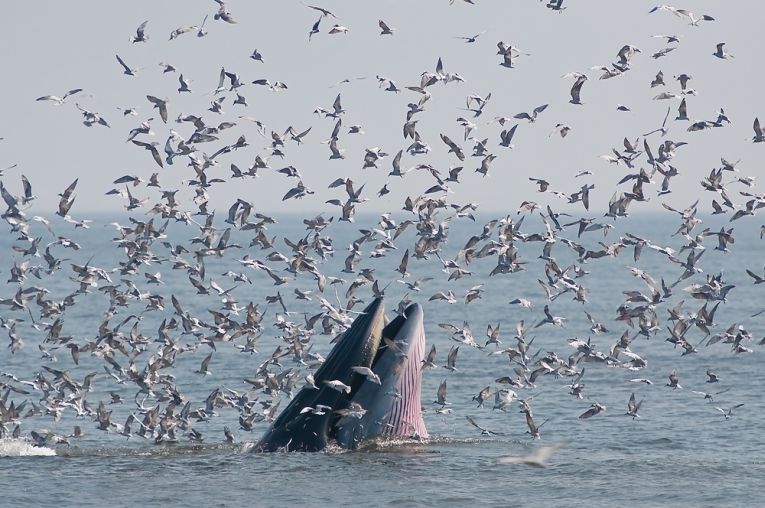Earth Times loves the humpback, from its hit songs to those great fins. Of any mammal, the many humpback migrations from the tropics to the Arctic are the longest known. Through time, this unique whale has become semi-speciated into 3 populations, according to DNA analysis that is also able to probe the humpback's ancient populations, back to the Pleistocene..
2700 individual whales' mitochondrial DNA sequences were investigated as well as the nuclear intronic sequences of 70 living whales from the 3 representative populations of ocean basins. With no actual geographical barrier, the Southern Ocean and the North Atlantic and North Pacific populations seem to be separated by the thermal barrier of the Equator. Past history indicates that the northern populations may have separated before the last glaciation. Female humpbacks naturally return to both feeding and breeding grounds, so the population would have followed this "maternal preference" in each of the groups.
There has been ancient gene flow between all of the oceans. The 3 populations have had connections and the Southern Hemisphere breeding grounds stretch as far as Costa Rica and Gabon, north of the equator. However there is no current evidence. Because there are no physical differences in measurements such as length, it has recently been assumed that there was no evidence of true subspecies in modern times.
Now we have evidence that the theorists are wrong! There were estimated to be up to 219 haplotypes (parts of genetic formulae) worldwide, containing sites where multiple substitutions had taken place. Only one haplotype was shared between North Atlantic and Southern Hemisphere whales, with 2 shared between North Pacific and Southern animals. Naturally, the greatest differences were found between the well-separated Atlantic and Pacific whales. Common alleles such as the actin allele were frequent in all populations. Only a few "private" characteristics, controlled by alleles presented themselves in the Southern Ocean populations.
How to interpret the results? Genetic diversity of mtDNA in the humpback may imply large ancestral populations or simply a restricted gene flow. Nuclear DNA is much less diverse. This makes an alternative argument for smaller ancestral populations or, more likely, loss of diversity from whaling, which would have caused population bottlenecks. Fin whales may well have similar population divergence. The cause really seems to be the equatorial temperature barrier.
The measurements suggest only mean 1.6 humpback migrants between any of the populations for each generation. This applies when either the mtDNA or the nuclear DNA are studied. Pulses of migrants could have escaped their home range under unusual climate conditions or there could be some regular slow migration. No matter, the subspecies are quite distinct and are ready to be named Megaptera novaeangliae kuzira in the North Pacific; Mn. novaeangliae in the North Atlantic and Mn. Australis in the Southern Hemisphere.
During the past million years, modern lineages have colonised the Atlantic and Pacific, probably about 200,000 years ago. The Pacific was colonised first, followed by a slow population expansion within an Atlantic population, maybe even as late as 55,000 years ago. Whether whaling caused reduced diversity or it was already present is debateable. If glaciations affected the humpback, then the data suggest it must have been long before recent Ice Ages, 12,000 years ago.
Jennifer Jackson of Oregon State University and her 8 colleagues from the British Antarctic Survey, Florida State University, James Cook University (Australia), Aukland University (NZ), Fundacion CEQUA (Chile), the Wildlife Conservation Society (US), and the American Museum of Natural History (US) all present their historic and enlightening paper today. "Global diversity and oceanic divergence of humpback whales (Megaptera novaeangliae)" can be found in - Proceedings of the Royal Society B.
We present our own connected story to fill you in on any information on how humpback songs might vary in Humpback whales singing different songs.










